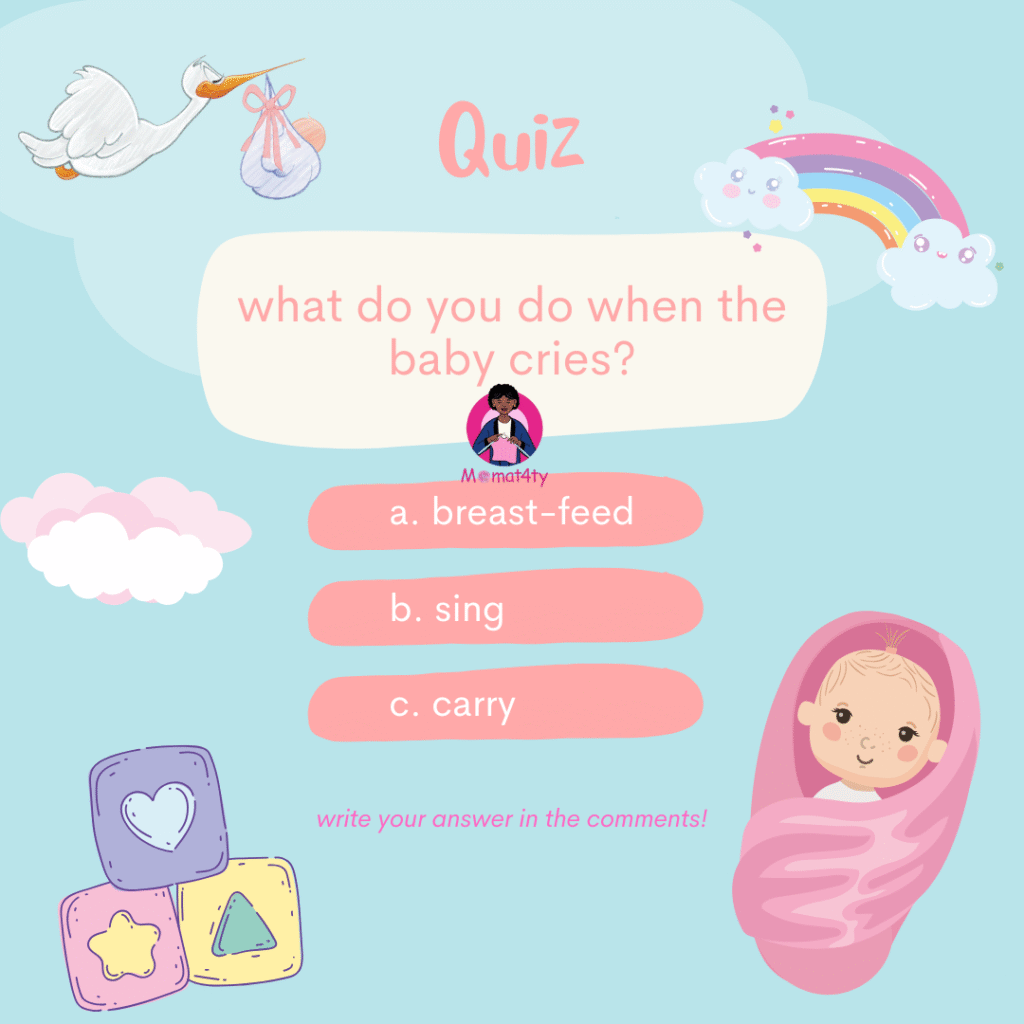As African mothers, we’re often expected to just “know” what’s wrong with our babies. After all, our mothers did it, right? But let’s be honest, sometimes, your baby is fed, clean, and wrapped like a precious yam… yet they just won’t stop crying. And it can feel overwhelming.
Let’s talk about it. Let’s say it louder: crying is your baby’s only language. But what if you’ve checked all the usual suspects—diaper, hunger, sleep—and the crying still doesn’t stop? You might be dealing with something a lot of us don’t even hear about until we’re in the thick of it: colic.
- Colic—The Cry No One Warned You About
Colic is when a healthy baby cries for hours, for no clear reason, usually in the evening. It’s often caused by trapped gas, indigestion, or an immature digestive system. And it can make a confident mum start doubting everything. But you’re not doing anything wrong, this happens.
Here’s what might help:
- Burp during and after feeding—yes, both times.
- Hold your baby upright for a bit after feeds.
- Gently rub their tummy in a circular motion or try a warm compress.
- Avoid tight clothes that put pressure on the tummy (those cute jeans can wait).
Sometimes, all your baby needs is a little patience and a lot of cuddles.
- Teething—That Unexpected Pain
Around 6 months, your baby’s gums begin to ache as tiny teeth prepare to break through. But teething pain is sneaky, it shows up as fussiness, drooling, and yes, more crying.
Here’s what can help:
- A clean finger or teething toy to massage their gums
- A cold (not frozen!) cloth or Soothing Teether, put it in the fridge to cool
- Lots of extra love and attention, they’re not being clingy, they’re just uncomfortable.

The Way You Carry Them Matters Too
Did you know that how you hold or lay your baby can sometimes cause tiny muscle spasms or stiffness, causing your baby pain? Especially if their neck or back is strained.
Try this:
- Gentle baby massage using a bit of coconut oil or baby balm.
- Keep your baby’s body supported when carrying them, their spine matters.
- If your baby cries when being put down, try changing positions; they might just need to stretch differently.
Sometimes, It’s Just Too Much
Think about how you feel after a long day in a noisy market or crowded bus—drained, right? Babies feel that too.
Overstimulation is real. Loud noises, bright lights, and too many visitors can all lead to a cranky baby.
What helps:
- Create a calm corner for your baby, dim the lights, and lower the TV volume.
- Limit visitors, especially in the early months.
- Establish a soothing routine, soft singing, swaddling, and gentle rocking.
Let’s Not Forget Trapped Gas
Gas is a common culprit. Babies swallow air when feeding, crying, or even sucking on pacifiers. This air gets trapped and causes sharp tummy pain.
What works:
- Burping during and after every feed
- Baby bicycles; move their legs like they’re pedalling to help release gas.
- Warm baths or warm towel compresses on the tummy.
- Avoid tight waistbands; a quick change of outfit can sometimes mean a quick change in mood!
It Could Also Be…
- Overheating or chills: Babies can’t regulate temperature well. If their back is sweaty or their hands are too cold, adjust their clothing or the room.
- Sensory overload: Some babies dislike certain fabrics or strong smells. If they cry every time you use that new lotion, take the hint.
- Sleepiness: Just like you after a long day, babies get cranky when they’re tired. A nap could fix it all.
Note that you’re not alone. Being a mother doesn’t mean having all the answers from day one. It means learning your baby’s language, one cry at a time. So take a deep breath, trust your instincts, and remember that your baby is lucky to have you.
At momat4ty.com, we’re here to share these truths, so you never feel like you’re going through this alone. Let’s talk about the things no one talks about. Let’s raise strong, loved, and understood babies, together.


Pretty section of content. I just stumbled upon your website and in accession capital to
assert that I acquire in fact loved account your blog posts.
Anyway I’ll be subscribing for your feeds or even I achievement you
get right of entry to constantly quickly.